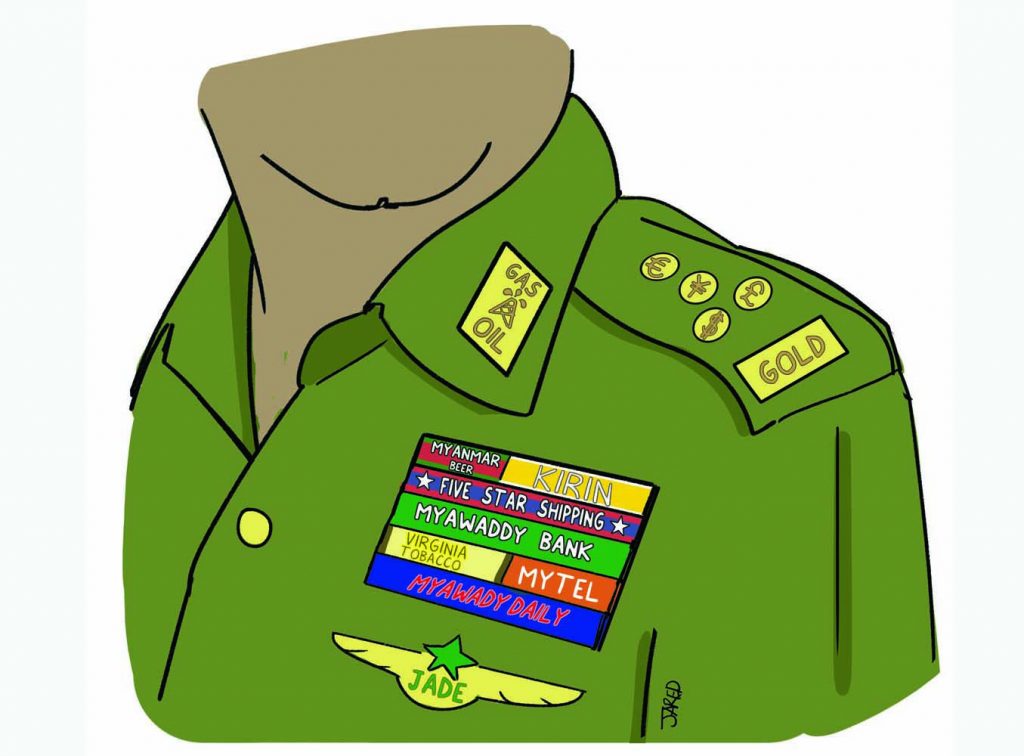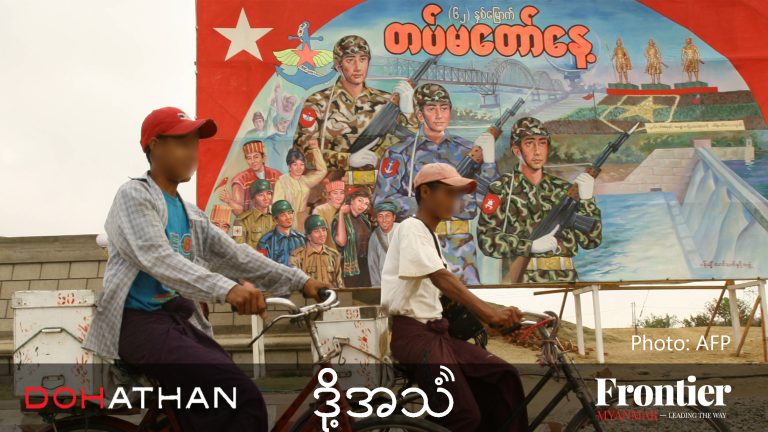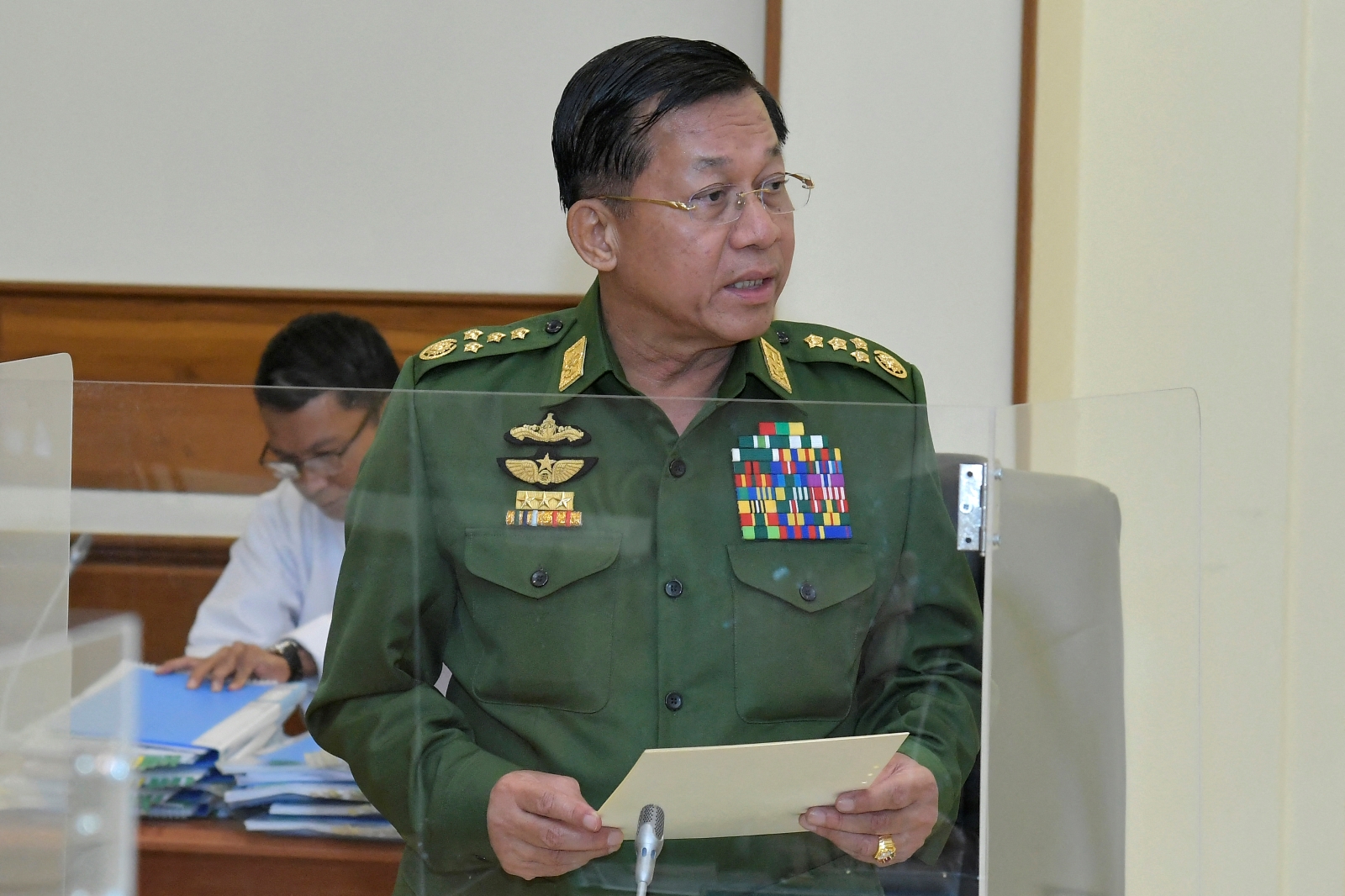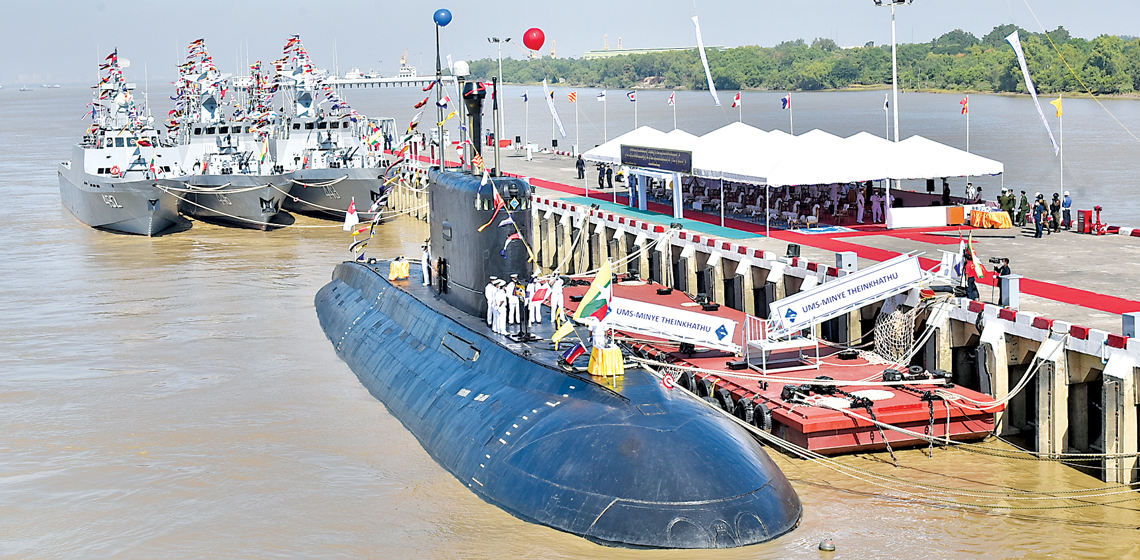When the military enters the business arena, it needs to play by the same rules as everyone else.
Under both the National League for Democracy and Union Solidarity and Development Party governments, many important steps have been taken to reform Myanmar’s business and economic environment, particularly when it comes to transparency.
Myanmar has an open registry of companies. It publishes budgets. Tenders are announced publicly. There are many other examples.
But some parts of the economy remain a black box.
The biggest and most lucrative of these black boxes is the business interests of the military, and serving and former military personnel.
This was underscored again recently, when the Directorate of Investment and Company Administration published beneficial ownership information on 162 companies in the extractive sector.
Many companies failed to provide adequate, or even any, information on their beneficial owners. Disturbingly, but perhaps not surprisingly, this included a number of subsidiaries of the Tatmadaw’s two major conglomerates, Myanmar Economic Holdings Public Company Limited and Myanmar Economic Corporation.
MEHL’s declaration listed itself as its owner, and claimed that two serving generals and one former general each control a third of the company. None of them were listed as being politically exposed persons. It also provided a list of 50 shareholders, but their holdings account for barely 1 percent of total shares. The rest are owned by serving and former military officers, various parts of the Tatmadaw and veteran’s organisations, it says, but exactly who or which is unclear.
Myanmar Economic Corporation Limited did even worse: it was one of 24 companies that provided no information at all on its beneficial ownership.
The respective entries of the companies on DICA’s Myanmar Companies Online registry shed little further light. MEC Ltd’s K1 trillion share capital is apparently held by MEC, a separate entity that does not appear on MyCO. As a public company, the names of MEHL’s shareholders are not publicly available on MyCO either.
Although MEC is said to be owned by the Ministry of Defence, its profits are not booked in the budget like other state-owned enterprises, the United Nations Fact-Finding Mission said in a 2019 report.
The military has previously claimed that these companies contribute to covering its expenses and thus reduce its reliance on the state budget. This may be true, or it may not – we have little idea where the profits from MEHL and MEC end up, or what they are used for.
In addition to its failure to properly comply with beneficial ownership rules, there are other indications that the military has not been playing by the book.
Recently it was revealed that two senior government officials, Myanma Port Authority managing director U Ni Aung and Customs director-general U Kyaw Htin – both former military officers – were concurrently serving on the board of MEHL.
Given the military operates or has a stake in several of Yangon’s major ports, this is an unconscionable conflict of interest. Underscoring this, Ni Aung’s MPA recently signed off on a liquefied natural gas import terminal at Thilawa on land rented from MEHL.
This cosy practice of MEHL directors regulating their own business would no doubt have continued if it hadn’t been for activist group Justice for Myanmar, which began ringing alarm bells back in May, and Myanmar Now’s persistent reporting. On July 16, government spokesman U Zaw Htay announced both Ni Aung and Kyaw Htin had resigned from MEHL, although the company’s DICA record still lists them as directors.
Zaw Htay was quoted as saying that the attorney general found there had been an illegal conflict of interest. Yet there is no indication the government plans to punish anyone; on the contrary, both Ni Aung and Kyaw Htin remain in their government roles.
This sends a clear message: that military businesses can act with impunity.
The constitution does give the Tatmadaw “the right to independently administer and adjudicate all affairs of the armed forces”. One could reasonably interpret this as applying to matters of military operations.
But when the military enters the business arena, it needs to play by the same rules as everyone else. After all, MEC and MEHL are registered under the Myanmar Companies Law and are competing in the private sector.
For too long though the NLD government has shied away from forcing the military’s businesses to play by the rules. If it was hoping they would improve their corporate governance on their own, it was sorely mistaken. It’s time for the government to get tough.







